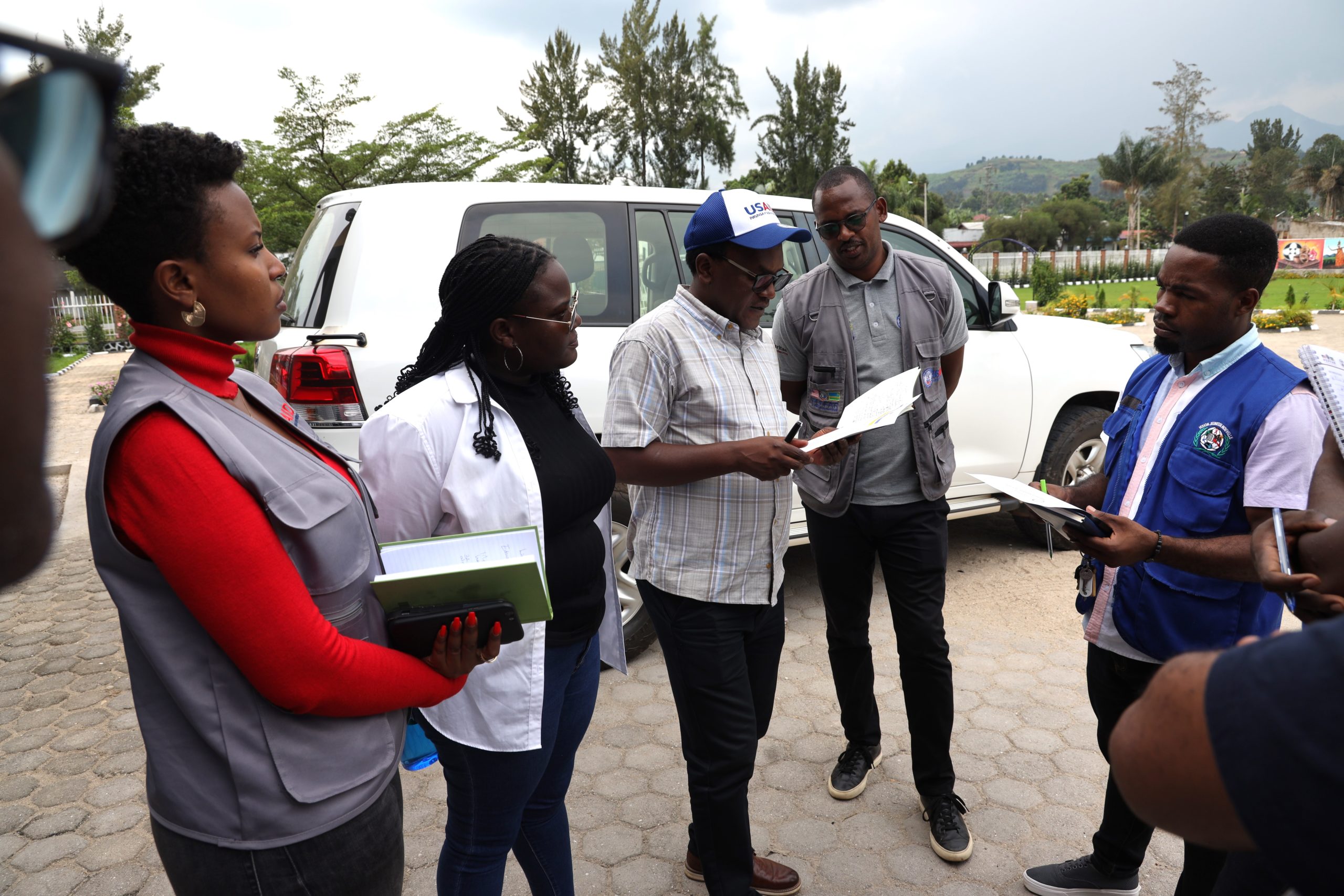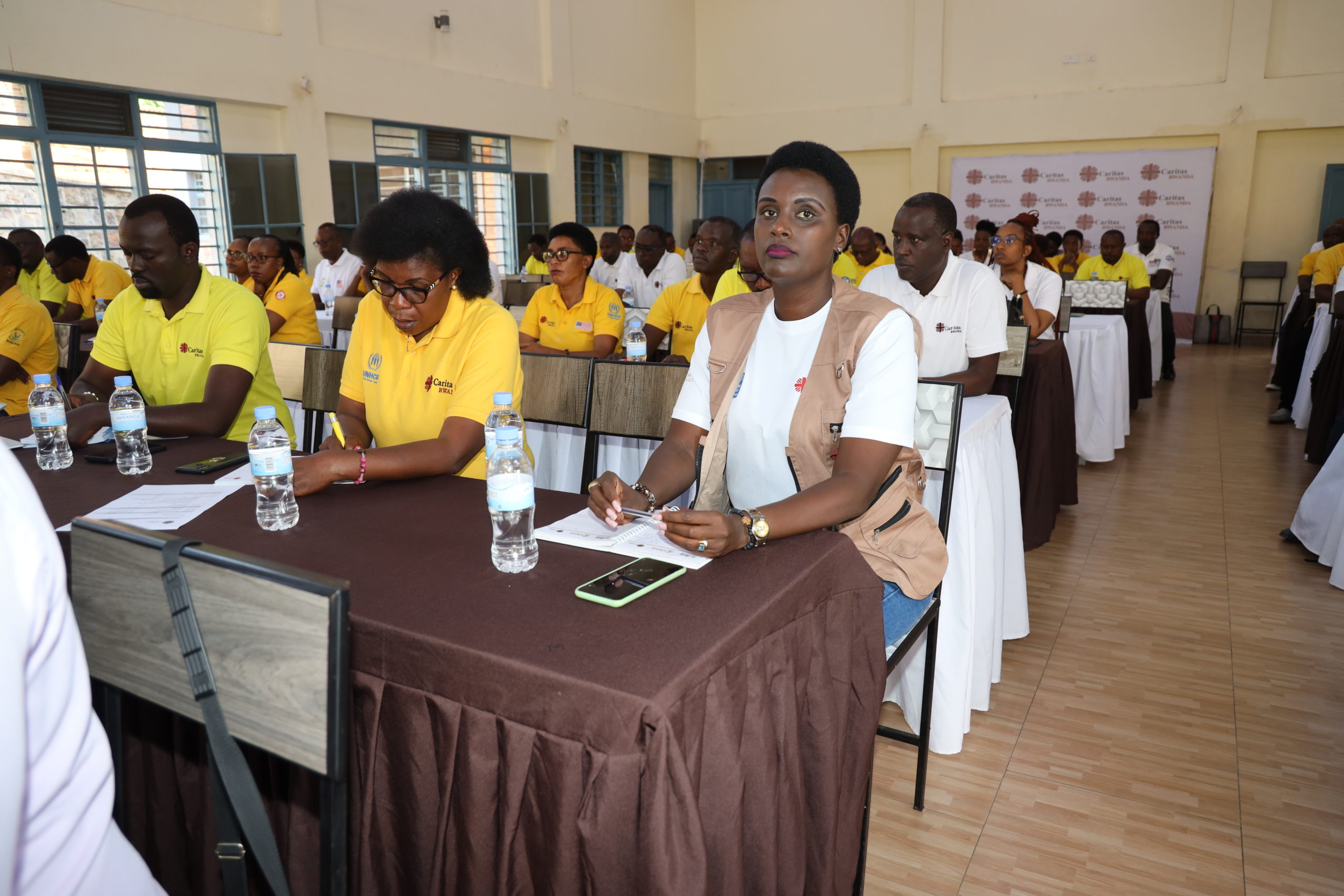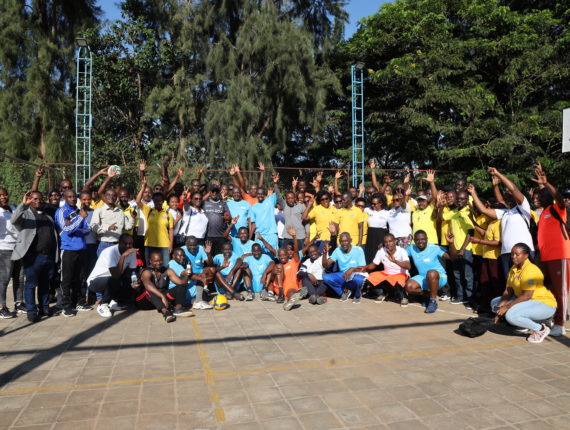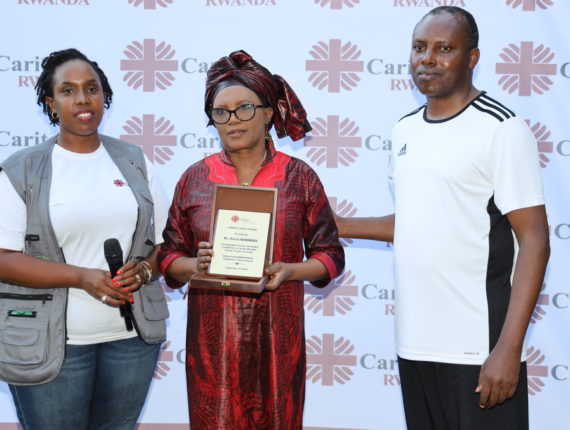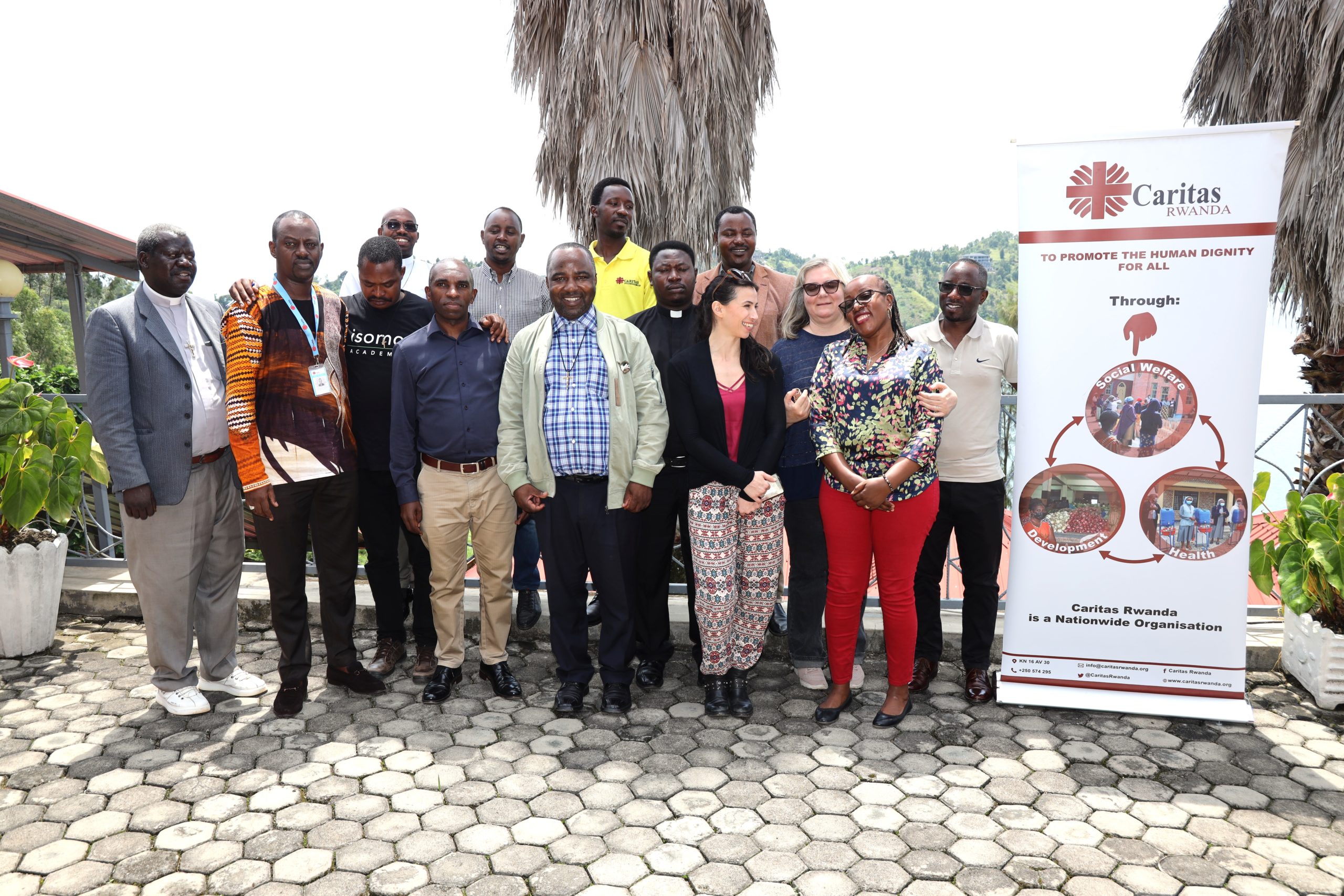As part of the program impact assessment, the USAID Rwanda team, along with Rubavu District educational officials, visited Igire-Gimbuka interventions in Rubavu on May 21 and 22, 2024. The visit included observing children who are supported in pursuing the TVET program at Vision Jeunesse Nouvelle Vocational Training Center, as well as children involved in the CBIM club at G.S. Shwemu II.
Addressing the children who are currently pursuing their vocational training at the Vision Jeunesse Nouvelle Centre, Mupenzi Pacifique, the Director of Education in Rubavu District, said that vocational trainings are very important because you don’t necessarily have to apply for a job, but you can create your own job or business. He encouraged them to resume their studies if they want to increase their chances in the job market.
Previously (on May 20), the USAID Rwanda team conducted a Site Improvement through Monitoring System (SIMS) and Data Quality Assessment (DQA) at Igire-Gimbuka’s Rubavu site. Hence, the Igire-Gimbuka scored 100% (green) in the Rubavu sector where the SIMS was conducted.

To strengthen the economic resilience of program participants, the Igire-Gimbuka created and supported community-based saving groups. Duharaniramahoro, one of these saving groups that engages in raising and selling 1-month-old chicks as a collective income-generating activity was visited by the USAID Rwanda team and Rubavu District local leaders on 22nd May. The group members were congratulated by the visitors for creating income-generating activities and encouraged them to form a cooperative.
Visitors had the opportunity to meet with volunteers and the Orphan and Vulnerable Children (OVC) supported by the Igire-Gimbuka Program. They learned about the various ways in which these volunteers support the participants of the program, including home visit practices, adherence, and supporting viral load monitoring and suppression. Additionally, visitors engaged with the leadership of Kigufi Health Center to gain insight into collaboration, referrals, and linkages.
One of the OVCs shared her journey of starting anti-viral medication when she had a high viral load. Initially, she visited the health facility monthly to receive ARV drugs, with transportation costs of Rwf 1000 covered by the Igire-Gimbuka Program. However, she later learned that friends receiving medication every three months were given a higher transportation allowance of Frw 3000. This motivated her to adhere to her medication schedule, leading to a significant decrease in her viral load. As a result, she transitioned to receiving medication every three months, improving her health and overall well-being.
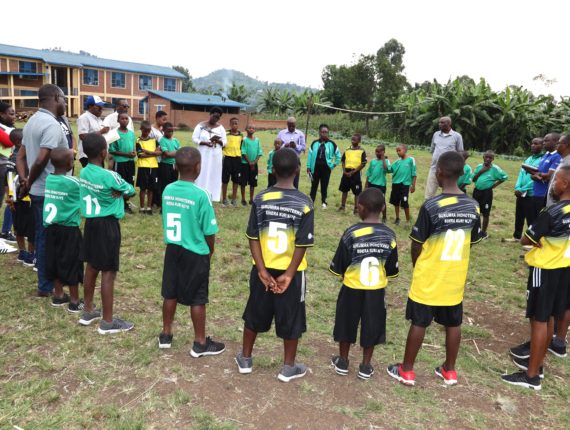
This girl also appreciated the Igire-Gimbuka because apart from helping her to improve her health, the program also helped her to accomplish sewing training and provided her with a sewing machine, which helped her to start a tailoring business.
During this site visit, the guests advised the volunteers to continue serving the program participants with zeal, even after the closing of the Igire-Gimbuka program.

They were also requested to report accurate statistics in their reports because they provide information on program participants’ health status and therefore provide them with the assistance they need.


